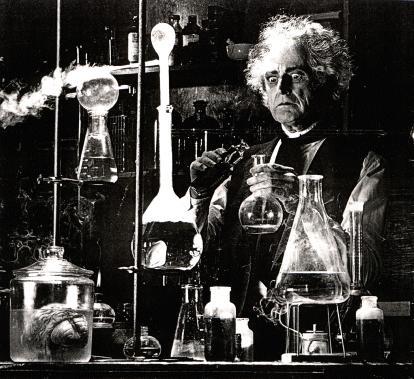
So I am going to start with the most important bit - the scientific method. The scientific method exists because humans are fallible. Very fallible. We let our bias and emotion cloud our judgements. We can miss important points, we can lie and cheat and push secret agendas. The scientific method exists for all of these reasons and more. The scientific method is a big topic and like any area of science has lots of theories and counter theories but they all based around the simple premiss; prove it!
The whole point of the scientific method is to set-out some ground rules for proof. This is important; for example, if you wanted to know who the best football team in the world is - you could watch the World Cup. This competition matters because the rules under which all the teams complete are the same. Prove it? OK, try this thought experiment; imagine that we change the rules so that African teams can now field a twice the number of players as the rest, European teams can have two goalies, Asian teams can use their hands without penalty and teams from the Americas can ignore red cards.
Before the rule change, the World Cup was not a perfect answer (the better team might have had a bad day or be missing key players due to injury or not had good access to training facilities), but it is a pretty safe bet that the team who wins are probably one of the, if not the, best team in the world. By contrast, after the rule change, there is no way we can say the winning team was the best because the winning team was, in effect, playing a different version of football from most of it's rivals.
This is the same idea for science; that when a scientist does an experiment to prove or disprove something, that there is a level playing field that allows others to verify that proof. These rules include;
- Telling us how you did your experiment. This is important because I might want to run the same experiment to check your results. I can only do this fairly if you've given me the right instructions on how you did it.
- The end result has to be able to predict something. That means that the results have to give us an insight. Take gravity for example - the Theory of Gravity predicts that when we drop something, it falls to the ground. The only way to be 100% certain would be to pick up every single thing and drop it to see what happens. Since that is impossible, we can run an experiment of picking up 100 things, dropping them and since all of them fell to the ground, we can then use this result to predict that if you drop something - it will fall to the ground.
- It has got to be disprovable. Why? If I said I has psychic powers and could move objects with my mind, you might want to proof. But if I then told you my powers only worked when nobody else is watching; you'd be sceptical. You'd be right to be sceptical because my claims can't be disproved - does not mean it's not true, just that it can't be proved and so is not valid.
- The proof you got has to be measurable in a meaningful way. This also relates to the above; if the experiment relies on something subjective, then it can't be repeated as an experiment. If it can't be repeated then it can't be proved and so is not valid.
I hope this explains things somewhat. You might have noticed that this method leaves doubt - it does. Science is essentially a way of managing doubt. Very rarely does something end up as 'the truth' in science - most often it ends up as 'the truth until evidence arrives to disprove it'. This is also key to understanding science - that whatever our prejudices, this idea of the scientific method is so that, in the end, the truth will out.

 Schnews DIY Guide
Schnews DIY Guide


2 comments:
'the Theory of Gravity predicts that when we drop something, it falls to the ground. The only way to be 100% certain would be to pick up every single thing and drop it to see what happens.'
My helium filled balloon doesn't fall down though when dropped. Does this disprove gravity?
Communicating science is a worthwhile thing to do, but when it's dummed down to this extent it doesn't make much sense.
Thanks for the feedback. But I am intending to make the guide very, very basic...
Post a Comment